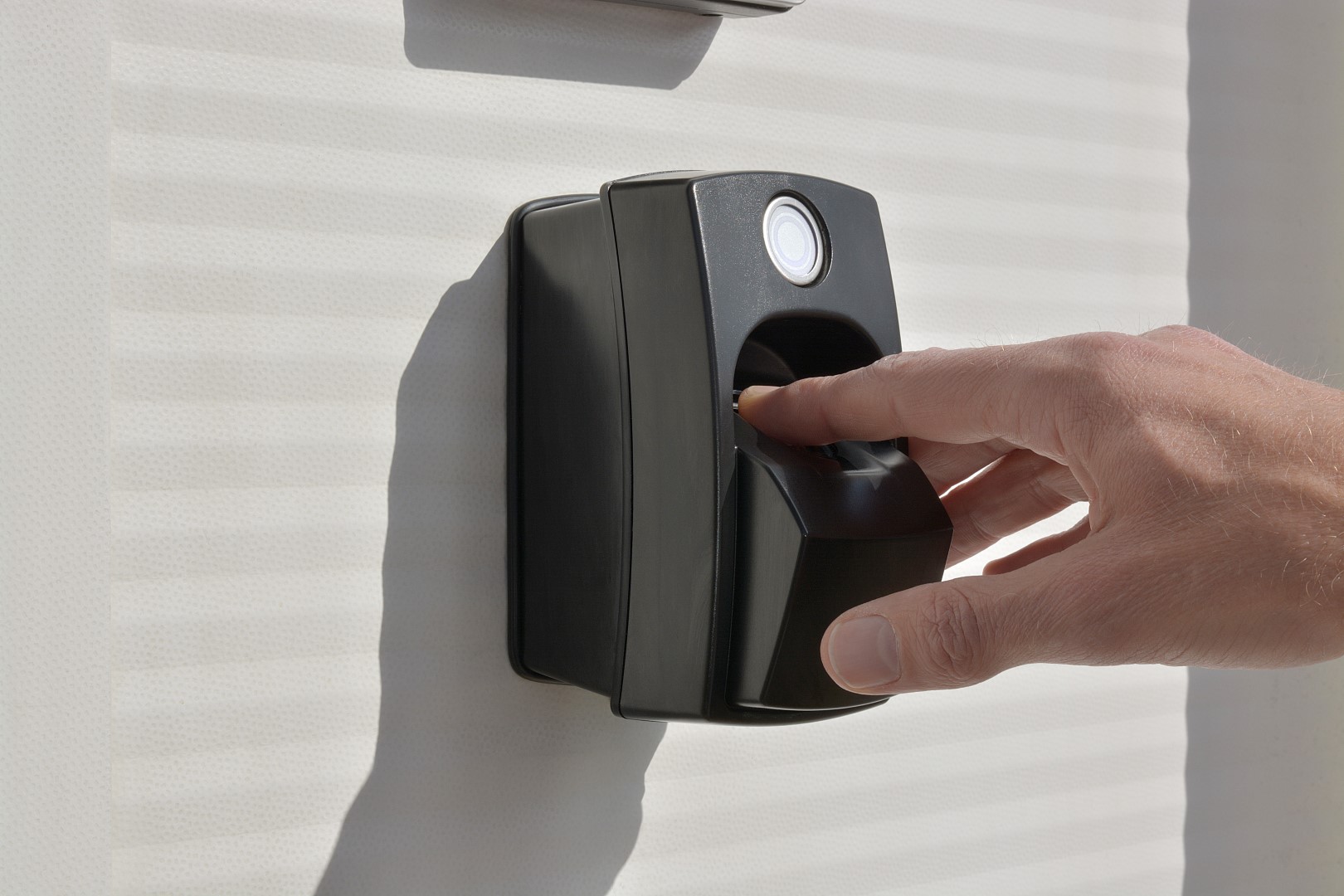ievo supplies ultimate™ fingerprint readers to secure the Tyne Pedestrian Tunnel
ievo Ltd, the Newcastle-based manufacturer of biometric recognition systems, have found one of their latest projects, quite literally, on their doorstep as an integral part of the security for the multi-million refurbishment and restoration of the Tyne Pedestrian and Cyclist Tunnels between Howdon and Jarrow.
Specified by Phoenix Eye Security, the Newcastle-based security experts, ievo have supplied their class leading ievo ultimate™ fingerprint readers at access turnstiles to both ends of the unique construction site, thus effectively securing access to the entire site and the 60 construction staff who will soon increase in number to 120 as the project progresses to its anticipated conclusion in 2018.
Craig White, Business Development Manager for Phoenix Eye, commented:
“It’s a unique heritage site with it’s own challenges but not out of the norm for ourselves. Our brief from NECA (North East Combined Authority) was to provide an integrated and totally reliable site security system for the contractors and sub-contractors which had to be robust IP rated due to the outdoor riverside environment, simple to instigate and maintain, and flexible to accommodate an increasing work force.”
“Access through the two full height turnstiles at each end of the site is controlled by the biometric readers. Staff can be very quickly registered using the ievo desktop registration unit and the readers are powered by a PoE (Power over Ethernet) option which helps the whole site reduce energy consumption to achieve BREEAM rating.”
“The site’s previous system of numbered tags and a signing book was simply no longer fit-for purpose whilst the concise and real time information the biometric system with the linked Paxton timesheet software not only creates a vastly safer and more secure site but gives precise information for the financial side of attendance etc.”
“We’ve worked with ievo equipment before and our staff recommend it in a variety of sectors, particularly construction where workers may not have the cleanest hands but we haven’t had a failure yet! For ourselves, the system very quickly pays for itself, negating the need for re-ordering key cards for lost cards or new workers and is robust enough to withstand the riverside construction environment.”
Cloe Snell, Regional Manager – North for ievo Ltd, added:
“Our biometric readers are designed for harsh environmental use, such as construction sites. The Tyne Pedestrian Tunnel project needed to remain operational regardless of the weather conditions or the amount of users enrolled – being able to provide a system that can help identify and manage a large workforce is what the equipment is designed for. The security staff like the ease of use for both enrolment and regular access whilst the overall system’s ability to generate accurate and reliable reports is a vast improvement upon the previous system used on site.”
Originally opened in 1951 as part of the Festival of Britain, the twin 900ft long tunnels, one is for pedestrian and the other for cyclists, were the first purpose-built cycle tunnel in the UK and the first to be used by both cyclists and pedestrians. The tunnels lie 12m below the bed of the River Tyne and 26m below the River’s High Water level. They also contain what was, at the time of construction, the longest single-rise escalators in the world and are still the four longest wooden escalators with a length of 61m and a vertical rise of almost 26m.
The tunnels, which originally cost £833,000 in 1951 and were awarded Grade II listing in 2000, closed in 2013 for the refurbishment work to begin.
[su_button url=”http://ievoreader.com/” target=”blank” style=”flat” background=”#df2027″ color=”#ffffff” size=”10″ radius=”15″ icon=”icon: arrow-circle-right”]Click here to find out more about ievo[/su_button]



















